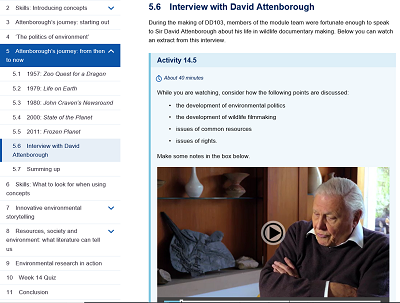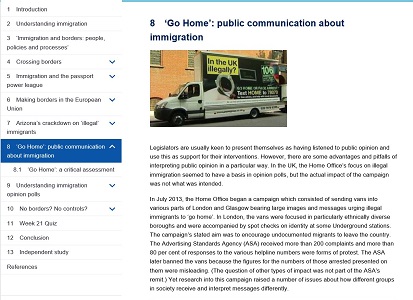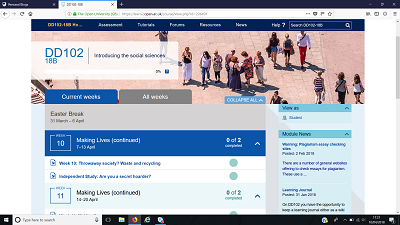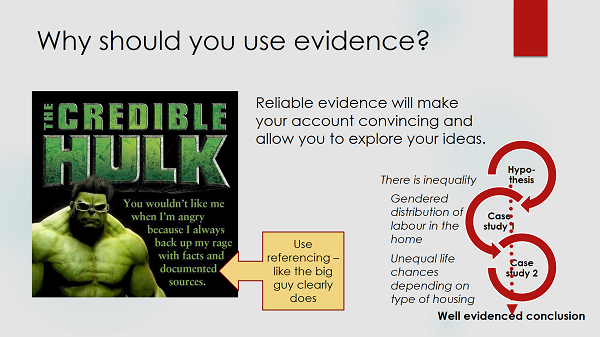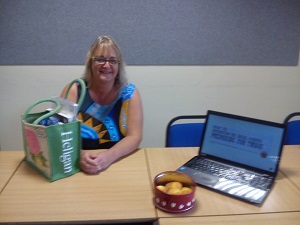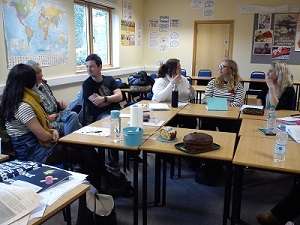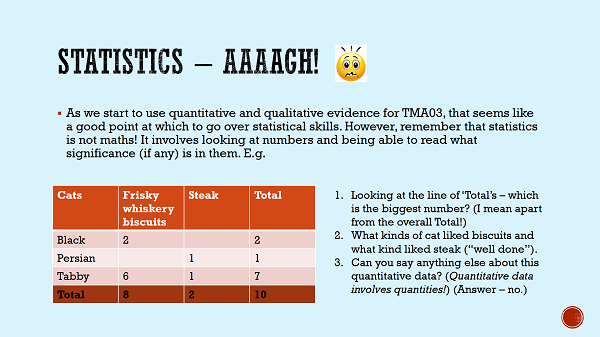This
blogpost was written to accompany a short presentation for the Future of
Interdisciplinary Teaching & Learning @ The OU (Online) Conference in
June 2022. It considers whether small group learning might support better
achievement for our students, and might help us close our awarding gap for
Black, Asian and minority ethnic students. It concludes that pro-active inclusive
forum moderation, if resourced through training and workload allocation, could
provide support for all our students and particularly for those from groups who
experience specific barriers in engagement with peer students online.
An understanding of discrimination and the disadvantages faced by those from global majority backgrounds was sharply brought into focus in Black Lives Matter and during the pandemic, when it became clear some communities lacked access to resources which others hardly think of as a 'privilege'. At the same time, the pandemic brought online learning front and centre stage as a means of supporting education.
Drawing on academic literature about how racism is experienced online (Noxolo, 2022; Noble, 2018), and a small review of literature about issues of race politics in online learning, this short talk will sketch out some of the issues faced by our global majority students.
During the pandemic, it became clearly evident that Black, Asian and minority ethnic communities and families lack access to resources which others hardly think of as a ‘privilege’. The murder of George Floyd and subsequent publicity given to local acts of discrimination and abuse in the UK also made evident the systemic nature of racism in our society and institutions. DiAngelo (2018) had written previously about the insidious ways in which that systemic racism continues to institute a privilege which global minority people often take for granted, and the ways global minority people sometimes refuse to acknowledge that the ease with which they move in society compared to global majority people is other than a norm for everybody, or a natural state of existence in which they should be allowed to continue without change. Writers like Noble (2018), Benjamin (2019) and Noxolo (2022) show how that systemic racism instituted through privilege is also instituted online. Picower (see my blogpost here) describes the particular struggles for liberal-minded (school) educators to comprehend systemic racism.
It has become apparent in Higher Education, that being able to achieve to your full potential is one of those ‘privileges’ often taken for granted. Here at the Open University, as at other Higher Education Institutions, we have an ‘awarding gap’ for Black, Asian and minority ethnic students (Awan, 2020). The size of the gap varies between different courses of study. It is more substantial for Black students, and greater for some groups of Asian students than for others. It is clear that we are not providing all students with the same level of opportunity to gain the class of degree they deserve. For this reason, we choose to call this the ‘awarding gap’ – putting the responsibility for this failure on our institution, rather than an ‘achievement gap’ – which suggests that responsibility rests with individual students (Choak, 2022). We know that individual Black, and some groups of Asian students, are not getting a ‘level playing field’ in their studies at the Open University.
Using Learning Analytics, Nguyen, Rienties and Richardson (2020) discovered that BME students at the OU were 19%–79% less likely to complete, pass or achieve an excellent grade compared to White students. Yet their data also showed that BME students were studying for 4%–12% more time than White students.
These findings are echoed in other studies (not very many!) about race and online and distance learning (based in the United States). There is a shift in these studies from a qualitative approach (De Montes et al, 2002 and I’m going to include Triesman, 1992), to a quantitative approach (as can be seen in Nguyen, Rienties and Richardson’s 2020 study).
Some studies are about registration rather than an ‘awarding gap’. They explore race and ethnicity together with other demographic factors (not as ‘intersectional’ identity - Crenshaw, 1989, simply as a set of groups who potentially experience disadvantage in Higher Education). They find that similar proportions of ethnic minority students apply to study online as to study on campus (Goodman et al, 2019; Doyle, 2009), although Wladis et al (2015) find that Black and Hispanic students are significantly under-represented in STEM (Science, Technology, Engineering and Maths) courses online.
Athens (2013) offers a more in-depth exploration of ethnicity, achievement and retention than other quantitative studies. In a similar finding to that of Nguyen, Rienties and Richardson, she found that young ethnic minority men were more engaged in their studies than other groups of student, yet got lower grades and were less likely to continue their studies (retention gap).
Athens’ study defines ‘engagement with studies’ as both engagement with course materials and interaction with peers. However an earlier study separates these kinds of engagement. In a study on calculus students, Triesman (1992 and see discussion in Steele, 2010) found that African-American students spent longer working with course materials, but did not ask for support not only from classmates (key in the success of other ethnic groups’ success) – even from class assistants and lecturers. Their achievement was significantly lower than both white students (casual chat about studies) and Asian-American students (regularly working in study groups in the library). This suggests a possible explanation for the puzzling finding by Nguyen, Rienties and Richardson. BME students at the Open University may be spending more time studying: but in isolation. Triesman’s findings suggest that peer group study chat could be a factor in student grades. (This hypothesis is supported by a large body of literature on small group chat in online education.)
At the Open University, the main formal way students are supported to chat about their studies is through online fora. However, there may be good reason why global majority students would eschew forum discussions.
A small informal account of forum posting in support of study by Baker et al (2018) shows that while students would respond at similar levels to posts from other students with names suggesting diverse ethnic/gender identities, tutors were twice as likely to respond to a student with a white male sounding name than to other demographics of student. An earlier qualitative study on forum posting by De Montes et al (2002) found problematic exchanges between “Anglo”, “Hispanic” and “Navajo” students. Tutor intervention – in spite of efforts to be neutral and even-handed, made matters worse. Using a constructivist ontology with symbolic interactionism and critical theory, the authors identified how “Anglo” students exert privilege online. They found that when a tutor tried to intervene in a neutral even-handed way this further instituted white privilege.
“Computers are not culturally neutral, they amplify the dominant culture” (Bowers, 2000, cited in De Montes et al, 2002, p.268). Like Google algorithms (Noble, 2018), online education is designed and run by (white) humans. These two studies begin to show how white privilege can be continually re-inscribed into online learning. This makes group learning opportunities uncomfortable and sometimes even hostile spaces for global majority students.
At the Open University, there are usually two, sometimes three, kinds of fora provided on each module:
- a forum for a group of 12-25 students run by their own tutor (Tutor Group Forum),
- a forum for the ‘cluster’ run by tutors who are in a team, usually teaching across a geographic region (Cluster Forum),
- a ‘Module Forum’, on which the Module Team or Associate Lecturers employed on separate contracts, will engage with students from across the module as a whole.
The amount of time Associate Lecturers spend moderating their own and the Cluster Forum varies considerably according to personal teaching preferences. (While some invest time in group forum moderation, others prefer to offer synchronous one to one tutor-student interaction.) Associate Lecturers can voluntarily sign up for training in forum moderation. The training, provided by Peer Associate Lecturer Support and Associate Lecturer Staff and Professional Development teams, is of a high quality however it is unpaid and busy ALs are unlikely to prioritise it.
The human support provided by tutors, with touches of humour and with sympathy or empathy in difficult situations, is highly valued, especially by under-confident students who need reassurance to fully engage with their studies. Moderating fora, and particularly doing so through pro-actively inclusive exercises, is a technical skill. It can be a time-consuming and emotional labour. Engaged and open-minded forum discussion could support all of our students to achieve better. Providing this effectively requires resource investment in training and workload allocation for our teaching staff.
What can I do?
Central academic staff: explore whether forum exercises are part of the module materials. Can these be designed to be more inclusive of global majority students. Is there scope to allocate teaching hours to bring Associate Lecturers together for team discussion about how to manage forum moderation, and perhaps also for workshops on inclusive teaching practice and forum moderation skills.
Staff Tutors: discuss with your team of Associate Lecturers whether there are ways to manage forum moderation so that it is more consistent and more inclusive (if paid time is available on the module for this discussion work). Many cluster forums are run on a rota basis, with the moderator changing every couple of weeks to a different tutor from the cluster: this leads to inconsistent forum support. On some cluster forums, one tutor or a team of tutors, can use teaching hours to undertake the forum moderation, with other tutors choosing to do more teaching via cluster tutorials. Consider which approach would best support students in your cluster. Can teaching time also be utilised to allow the tutor moderators to undertake training.
Associate Lecturers: inclusive education teaching is often additional work which should be part of your paid hours. (If some of us undertake additional work voluntarily, while others stick to core contractual teaching tasks, it will not be possible to support a fully inclusive environment at the university.) If you have got scope in your paid teaching duties to develop inclusive teaching as part of forum moderation, you might like to consider:
- Putting up a thread at key dates (see blogpost);
- Highlighting material in the module which allows students to have a discussion about equalities;
- Putting up material about topical events or other items about equalities, which are also of relevant interest for the students on that module, for moderated discussion.
Athens, W. (2018) ‘Perceptions of the persistent: Engagement and learning community in underrepresented populations’, Online Learning Journal, 22(2), pp. 27–58.
Awan, R. (2020). ‘The awarding gap at The Open University’ on OpenLearn. Available at: https://www.open.edu/openlearn/education-development/the-awarding-gap-the-open-university (accessed 17/06/2022).
Baker, R., Dee, T.S., Evans, B. and John, J. (2018) ‘Race and gender biases appear in online education’. Available at: https://www.brookings.edu/blog/brown-center-chalkboard/2018/04/27/race-and-gender-biases-appear-in-online-education/ (Accessed: 11/072020).
Benjamin, R. (2019) Race After Technology: Abolitionist Tools for the New Jim Code. Cambridge: Polity Press.
Choak, C. (2022). ‘Decolonisation and Higher Education: Closing the Degree Awarding Gap’ on OpenLearn. Available at: https://www.open.edu/openlearn/education-development/decolonisation-and-higher-education-closing-the-degree-awarding-gap (accessed 17/06/2022).
Crenshaw, K. (1989) ‘Demarginalizing the intersection of race and sex: A black feminist critique of antidiscrimination doctrine, feminist theory and antiracist politics’. University of Chicago Legal Forum, 139, 139–167.’, University of Chicago Legal Forum.
De Montes, L. E. S., Oran, S. M. and Willis, E. M. (2002) ‘Power, language, and identity: Voices from an online course’, Computers and Composition, 19(3), pp. 251–271.
DiAngelo, R. (2018) White Fragility: Why it’s so hard for white people to talk about racism. Allen Lane.
Doyle, W. R. (2009) ‘Online Education: The Revolution That Wasn’t’, Change: The Magazine of Higher Learning. Informa UK Limited, 41(3), pp. 56–58.
Goodman, J., Melkers, J. and Pallais, A. (2019) ‘Can Online Delivery Increase Access to Education?’, Journal of Labor Economics. University of Chicago Press, 37(1), pp. 1–34.
Nguyen, Q., Rienties, B. and Richardson, J. T. E. (2020) ‘Learning analytics to uncover inequality in behavioural engagement and academic attainment in a distance learning setting’, Assessment and Evaluation in Higher Education, 45(4), pp. 594–606. doi: 10.1080/02602938.2019.1679088.
Noble, S. U. (2018) Algorithms of Oppression: How Search Engines Reinforce Racism. New York: New York University Press.
Noxolo, P. (2022). ‘Dreading the Map’. Talk given at the Royal Geographical Society, on 28 Apr 2021. Details: https://www.rgs.org/geography/news/dreading-the-map/ (Accessed 17/06/2022).
Steele, C. (2010) Whistling Vivaldi: how stereotypes affect us and what we can do. New York: W.W. Norton.
Treisman, U. (1992) ‘Studying Students Studying Calculus: A Look at the Lives of Minority Mathematics Students in College’. The College Mathematics Journal Vol. 23, No. 5 (Nov., 1992), pp. 362-372.
Wladis, C., Hachey, A. C. and Conway, K. (2015) ‘Which STEM majors enroll in online courses, and why should we care? The impact of ethnicity, gender, and non-traditional student characteristics’, Computers and Education. Elsevier Ltd, 87, pp. 285–308.


